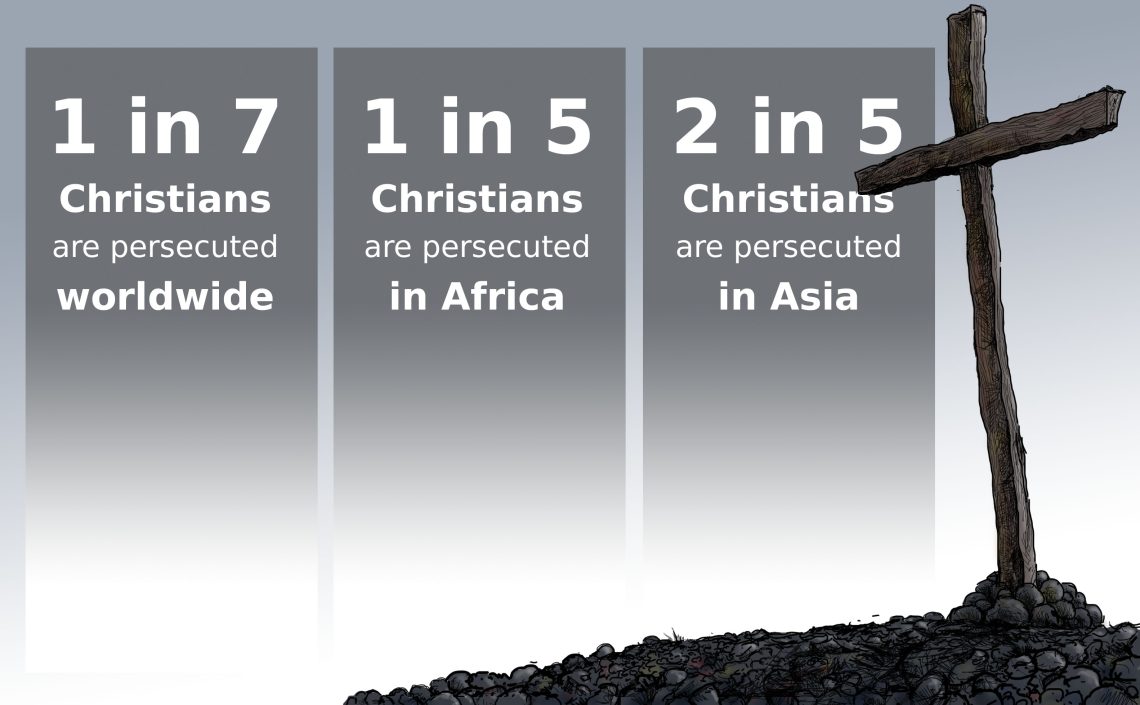More than 340 million Christians faced significant persecution in 2025, making the world’s largest faith its most marginalized – yet the world barely blinks.
On November 21, armed gunmen stormed St. Mary’s Catholic School in Niger State in north-central Nigeria, abducting more than 300 children and 12 teachers. Only days earlier, attackers had targeted a Christian church in a separate incident, killing two people and abducting 38 worshippers.
United States President Donald Trump has previously accused the Nigerian government of failing to protect Christians from radical Fulani herdsmen and Boko Haram terrorists. In response, he ordered the military to prepare for action in Nigeria against these extremist threats. Secretary of War Pete Hegseth confirmed this, stating that the Department of War is gearing up for military action. The message is clear: Either the Nigerian government steps up to safeguard its Christian population, or the U.S. will be compelled to consider direct intervention against the terrorists responsible for these horrific atrocities.
The situation in Nigeria reveals a deeply troubling pattern. The country has a long history of extremists targeting Christians and persecuting moderate Muslims as well. Between January and July of this year, reports indicate that around 7,000 Christians were murdered. Attacks on Christian schools are rampant, and churches are frequently set ablaze.
Despite Nigeria’s claim to be a secular state, Sharia law is enforced in several states, mainly in the north, contributing to police harassment against Christians, including instances of mutilations and killings. According to the Nigerian NGO International Society for Civil Liberties and the Rule of Law, around 52,000 Christians were killed and more than 18,000 abducted between 2009 and 2023. The report, released in August, underscores the scale of violence against Christians in the country.
Christian persecution extends far beyond Nigeria. The 2025 World Watch List published by Open Doors reveals that over 340 million Christians worldwide experience high to extreme levels of discrimination and persecution because of their faith. Although Christianity is the world’s largest religion, with 2.3 billion adherents and continued growth, the same report notes that one in seven Christians face persecution. This figure rises to one in five in Africa and two in five in Asia.
In addition to Muslim-majority countries, some non-Islamic nations also rank highly for Christian persecution – notably North Korea, China and Laos, where it stems largely from communist ideologies. Similar discrimination occurs in Myanmar and certain regions of India. Christians also face hostility in parts of Latin America, including Mexico, Cuba, Nicaragua and Colombia.
While Europeans often preach to the rest of the world about morality, they fall short in providing genuine assistance to one of the most persecuted religious groups.
Due to the rise of the Islamic State (ISIS) and similar jihadist movements, Christianity has been nearly eradicated from its historical strongholds in Iraq and Syria. Meanwhile, Egypt’s Coptic Christians, an ancient and important minority, continue to face significant challenges.
Religious persecution, particularly against Christians, has been largely overlooked in the foreign policies of both Europe and the U.S., even though it is one of the most severe forms of persecution today. It is commendable that the current administration in Washington is bringing this issue to light and will, hopefully, take meaningful action to address it.
While Europeans often preach to the rest of the world about morality, they fall short in providing genuine assistance to one of the most persecuted religious groups. It is crucial for Europe to remember its own Christian heritage and to recognize its moral obligations in this regard.
Receive insights from our experts every week in your inbox.
Information about what personal data we collect about you and how we process it (including information about how we personalize our website for you and deliver content tailored to you) can be found in our privacy policy.
Show all reports
